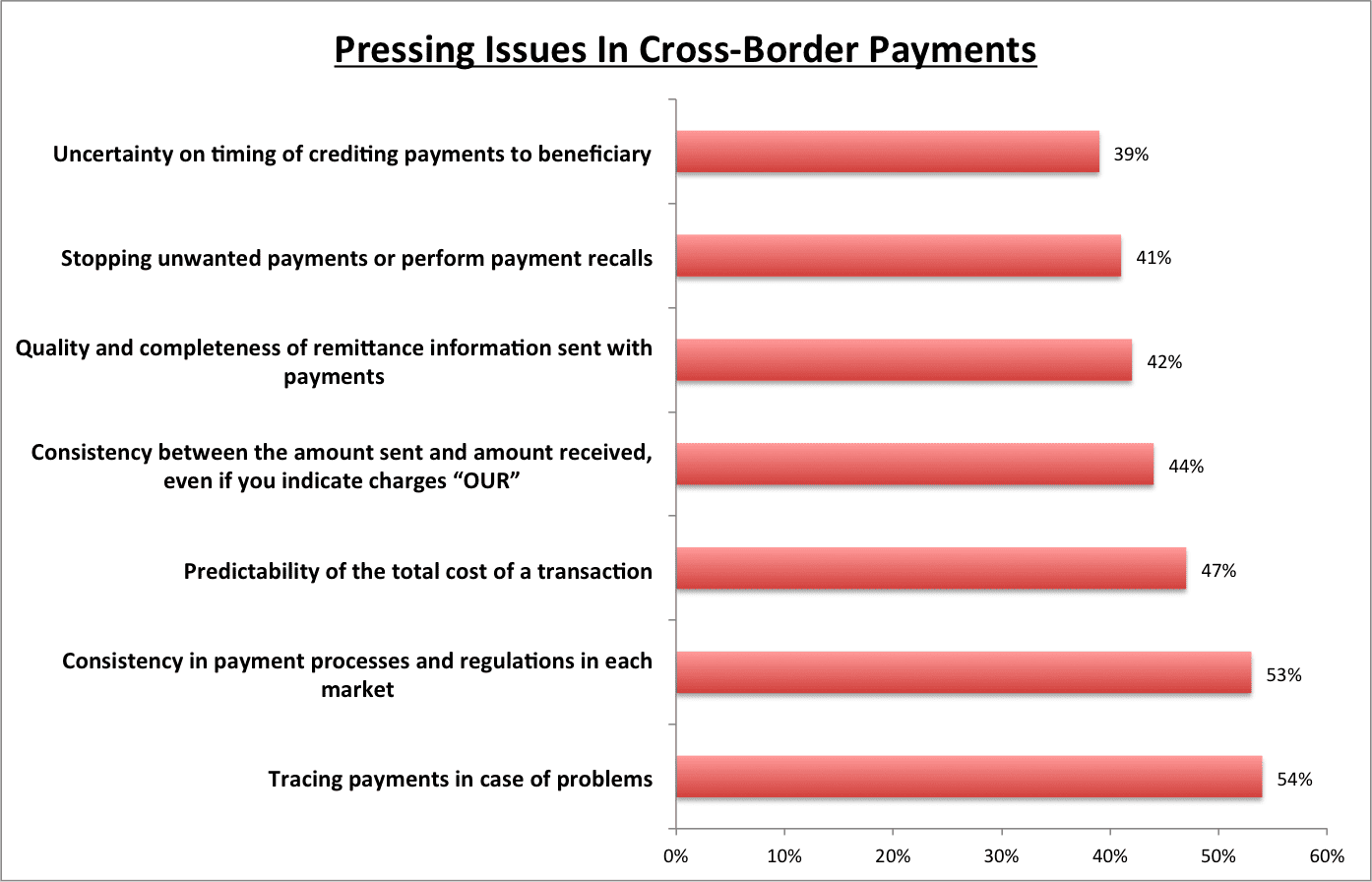The survey on the future of payments from a corporate treasury perspective gauged the views of treasury professionals, from SMEs to global corporations, in 18 different industries.
Enhancements to cross-border payments, including the ability to track a payment in real time and better visibility over bank fees, are high on treasurers’ priority list, according to a survey of 300 treasury professionals unveiled at EuroFinance in Barcelona on Wednesday.
But the survey challenged the notion that treasurers are likely to turn to alternative payment providers if they do not see enough innovation from banks in cross-border payments.
The survey, The future of payments: a corporate treasury perspective, conducted by SWIFT and EuroFinance, gauged the views of treasury professionals, from SMEs to global corporations, in 18 different industries.
The results identified pressing issues such as the current lack of payments traceability and confirmation of credit, the lack of visibility on bank fees deducted from transactions and the inconsistencies between the amount sent and amount received by the beneficiary.
“Corporates expect greater transparency in cross-border payments,” remarked Wim Raymaekers, head of banking market and SWIFT gpi (Global Payments Initiative) at SWIFT. “They want to know what is happening with the payment and when it has been credited on the beneficiary’s account. Until now, this has not been the case.”
Fifty-four percent of treasurers said they want real-time payments tracking, while 42% are looking for instant payments. They are also looking for greater consistency between bank payment processes and better visibility over banking fees, with 47% demanding better visibility on the cost and deductions from a transaction, and 41% looking to reduce and optimise exceptions and investigation handling.

Despite many treasurers believing that the current correspondent banking model for processing payments is inadequate, treasurers are not inclined to work with alternative payment providers, nor are they inclined to put pressure on their banks to innovate. Payment innovation was only referenced as a priority by 30% of treasurers when selecting a bank.
Fintech companies like Ripple, for example, leverage blockchain technology to reduce the time and cost it takes to settle payments cross-border. But only 8% of treasurers surveyed currently use alternative payment providers for their cross-border payments. More than 50% of companies across all categories indicated they had no plans to implement fintech solutions with their biggest concerns, being security and fraud prevention.
Whilst the theme for this year’s EuroFinance conference is “intelligent treasury,” it seems treasurers, who are mostly conservative by nature, given that they are sitting on large war chests of cash, which they must manage and invest effectively, have yet to be convinced of the merits of fintech or alternatives to banks. The question is, who will jump first, or are they waiting for the banks to decide which fintech partners they want to work with and to integrate those solutions within legacy banking applications?



